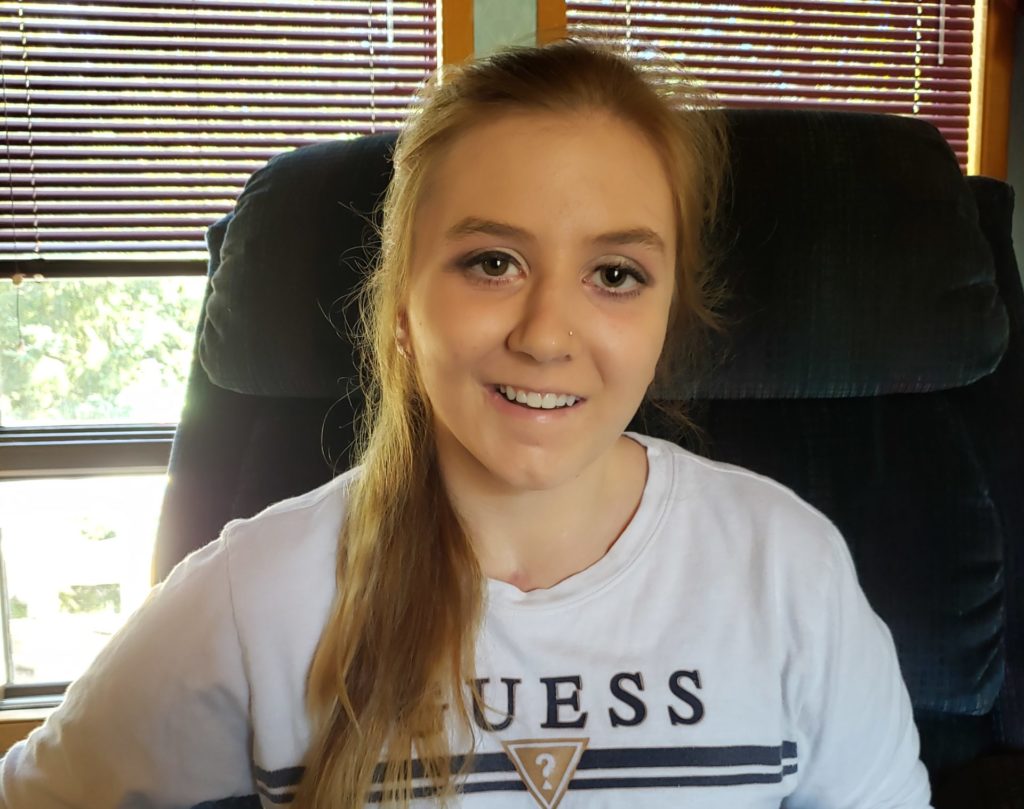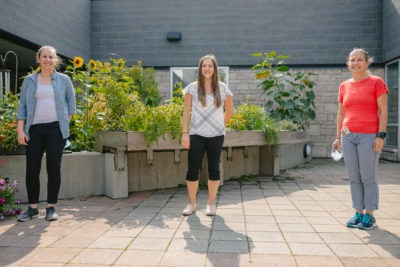
Fighting to get back to her fighting weight
Recovering from a traumatic car accident is difficult enough. But for one patient, her challenges were made worse by malnutrition after the accident damaged her ability to eat and gain strength.
“I remember noticing signs of significant muscle and fat wasting right away,” says Shannon O’Dwyer, registered dietitian in the Acquired Brain Injury Program at Hamilton Health Sciences (HHS).
It was June 2019 when Maresa Cappelli, then 20, was driving from Windsor to her brother’s house in Ruthven – a small community outside of Leamington. Shortly into her journey, her car was hit head-on by an aggressive driver. Maresa, known as Mar to family and friends, suffered a severe traumatic brain injury. Her jaw was broken in three places, she cracked a tooth, her ear was damaged, and her main facial nerve was severed.
She was rushed to hospital in Windsor, spent weeks in the intensive care unit (ICU), and an additional three months in the stroke unit before being transferred to the Regional Rehabilitation Centre at HHS to help in her recovery.
“In Windsor, she laid in bed for 23 hours a day on a feeding tube,” says Maresa’s mom, Rene Cappelli. “We – her family – noticed she was losing weight. She was usually around 112 pounds, but within three months immediately after the accident, her weight dropped to 93.”
After Maresa arrived at Hamilton Health Sciences, the staff noticed her body weakness.
“She had muscle wasting in her clavicle, her ribs, and cheekbones. She had been burning a lot of calories since the accident,” explains O’Dwyer. “And she was ‘NPO’– which means she couldn’t feed by mouth. Receiving enough nutrition had been difficult given feeds were interrupted for medical reasons throughout the day.”
Start of a new journey

Members of Maresa Cappeli’s care team. From left to right: Jesse Tulipano (Speech Language Pathologist), Shannon O’Dwyer (Registered Dietitian), and Esther McEvoy (Occupational Therapist)
Maresa was admitted to the HHS Regional Rehabilitation Centre in September 2019. O’Dwyer started working on Maresa’s nutrition right away.
“She had already been on a feeding tube for several months in Windsor,” says O’Dwyer. “Her speech-language pathologist Jesse Tulipano and I worked very closely together to slowly introduce foods back to Maresa’s diet.”
O’Dwyer says Maresa spent about another month on enteral feeds (feeding tube in the stomach), which was the safest option for her at the time.
“The goal was to improve her swallow function and attempt to transition to an oral diet. We looked at how much protein and the number of calories she was getting. Jesse then introduced Maresa to ice chip trials to help with proper swallowing mechanisms. Eventually, she worked up to yogurts and pudding,” says O’Dwyer.
When she progressed to using her mouth to eat, Maresa’s nutrition continued to be supplemented by enteral feeds to make sure she was getting adequate nutrition.
Improving her overall physical strength was also part of Maresa’s rehabilitation. With the help of her physiotherapist, Sarah Luxon, Maresa had to relearn how to sit up on her own, stand up, and walk again.
Pushing forward
Within six months at the Regional Rehabilitation Centre, Maresa was able to regain muscle mass and progressed well in her daily functional activities. By March 2020, she was ready to be discharged to a hospital in Sault Ste. Marie, about 100 kilometres from her hometown of Iron Bridge in Northern Ontario. But due to the COVID pandemic, Maresa spent only three days in hospital in Sault Ste. Marie before being sent home.
Maresa continues to work on her recovery from home, focusing on improvement in her speech and physical strength. A speech therapist and an occupational therapist from Sudbury are making visits to her home, and a rehabilitation specialist and a social worker from Sault Ste. Marie are also helping.
Despite the distance between Iron Bridge and HHS, her mother continues to be in touch with Maresa’s former care team.
“If I have any questions, I reach out to them,” she says. “They always make time to answer my questions and video chat. Maresa hasn’t gone backward in her progress, but she also hasn’t gone too much forward yet.”
“She’s a fighter. She always has been.”
Canadian Malnutrition Awareness Week is October 5-9, 2020.
